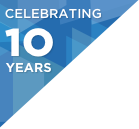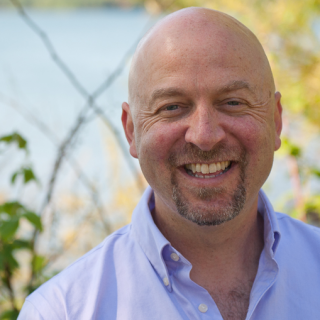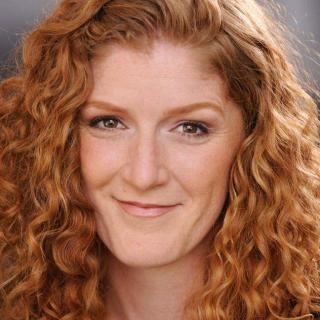Conference: Nov 13-15, 2017
Workshops: Nov 16-17, 2017
Presentation: The Improvisor's Code: Engineering Your Best Self
Key Takeaways
- Learn techniques and practices found in improvisation that enhance how we interact with each other and the world around us.
- Understand the idea of shared control and how improvisation can build teams that collaborate well.
- Gain experience using exercises found in improv.
Abstract
You put in long hours to make your projects smoothly effective - working to find the cleanest code, the most elegant fix, or the best path to the desired outcome. But sometimes it’s hard to know who to get such results for ourselves rather than just for our products.
This session gives you a hands-on experience with the tools and mindsets of improvisation so you can rewire your own circuitry and open up new capabilities in the way you interact with your work, your partners, and the world.
Learn the life hacks that help improvisors meet the world with generosity, boldness and optimism. Learn how performers find opportunity in every obstacle and delight in the unexpected turns. This session is interactive, and no one will be put on the spot.
Interview
Lisa: I am an improvisor. I am an actor, and I do a lot of performing on stage in improvised theater. I am a teacher of improvisational theatre at Stanford. I also do a lot of what is called applied improvisation, which is using the skills and mindsets of improvisation in non-theatrical settings.
Lisa: Everybody has days that don’t go according to plan. So we are all improvising all the time. The valuable thing about looking at things from an improvisor’s point of view is that practicing improvisation (and learning from the approach of improvisation) gives people an opportunity to put a name on and hone the skills of connection, collaboration, acceptance, and optimism. These positive ways of moving through the world, of doing your work, of collaborating with partners, of leading teams. Instead of just happening to do those things, improvisation gives you a way, a language and a process for practicing those things. Those skills are very much skills software developer, architects, and technical leaders can benefit from.
I would say that our goal at QCon is to put a name on and pick apart the processes of productive and generative collaboration. This is not just a mindset (like believing in yourself or having confidence). It is set of skills that can help you navigate things more confidently and productively.
Ted: I would add that we are also going to lean on our bias towards experience. We are going to name these processes and skills, but also give people a chance to practice them themselves. It’s going to be fun for people. There’s usually a lot of laughter in these sessions. It’s partly because there is a bit of a playful element to it, but also because people discover things that surprise them. They enjoy what comes out of their mouth, and what they seem to do when they are in the construct of this exercise (or this game).
Ted: For one, we’ll explore the notion of sharing control. Rarely do we get practice in learning how to accept and build upon each other’s ideas. For example in the academic world, we are trained to find mistakes and errors. We prove our worthiness in the classroom by showing that we picked somebody’s argument apart. In the improv world, you are making something happen in a moment from nothing. So we have to quickly build on each other’s ideas; accept them, and then build on them.
That approach is one that takes practice because it is usually foreign to most people. You have to accept I don’t know where this is going. This could fail completely. But I am going to accept and go with it anyway and see what happens. When you get good at that, amazing things can emerge.
Ted: Well, you know that’s a great question. The skills that we see in “Whose Line is It Anyway?” are a lot of the skills that we will be talking about. But that show is intended to be comedy. The way that Lisa and I approach improvisation is that comedy is a by-product (as opposed to the end point) of the improv. So some of the things we do may look similar to that, but not because we are going to be getting people up on stage to perform. We might have a few partnered or small group exercises. But we are not going to call people up on stage and make them perform.
Lisa: We are not going to perform in that way either. It is not about putting on a show or teaching people how to be funny or clever or witty. It is about focusing on the skills that improvisors have to employ in order to create something out of nothing. We practice those skills, and the humor finds its own way in.
Our goal is to give people an experience of that. People are adjusting on the fly and creating together all the time. Improvisors are just looking at those skills through a really specific lens, because they are using them very intentionally.
Ted: We also believe that this improvisor’s approach can help you not only at work, but also in your personal life. So that’s where we see it fitting in with the Optimize You track. It’s not just about being a better employee (or a more creative engineer), it’s about how you work at home with your spouse or your kids or the friends you hang out with. Whoever it is. What gets you up in the morning? How do you approach your day?
Similar Talks


.
Tracks
Monday Nov 7
-
Architectures You've Always Wondered About
You know the names. Now learn lessons from their architectures
-
Distributed Systems War Stories
“A distributed system is one in which the failure of a computer you didn't even know existed can render your own computer unusable.” - Lamport.
-
Containers Everywhere
State of the art in Container deployment, management, scheduling
-
Art of Relevancy and Recommendations
Lessons on the adoption of practical, real-world machine learning practices. AI & Deep learning explored.
-
Next Generation Web Standards, Frameworks, and Techniques
JavaScript, HTML5, WASM, and more... innovations targetting the browser
-
Optimize You
Keeping life in balance is a challenge. Learn lifehacks, tips, & techniques for success.
Tuesday Nov 8
-
Next Generation Microservices
What will microservices look like in 3 years? What if we could start over?
-
Java: Are You Ready for This?
Real world lessons & prepping for JDK9. Reactive code in Java today, Performance/Optimization, Where Unsafe is heading, & JVM compile interface.
-
Big Data Meets the Cloud
Overviews and lessons learned from companies that have implemented their Big Data use-cases in the Cloud
-
Evolving DevOps
Lessons/stories on optimizing the deployment pipeline
-
Software Engineering Softskills
Great engineers do more than code. Learn their secrets and level up.
-
Modern CS in the Real World
Applied, practical, & real-world dive into industry adoption of modern CS ideas
Wednesday Nov 9
-
Architecting for Failure
Your system will fail. Take control before it takes you with it.
-
Stream Processing
Stream Processing, Near-Real Time Processing
-
Bare Metal Performance
Native languages, kernel bypass, tooling - make the most of your hardware
-
Culture as a Differentiator
The why and how for building successful engineering cultures
-
//TODO: Security <-- fix this
Building security from the start. Stories, lessons, and innovations advancing the field of software security.
-
UX Reimagined
Bots, virtual reality, voice, and new thought processes around design. The track explores the current art of the possible in UX and lessons from early adoption.












